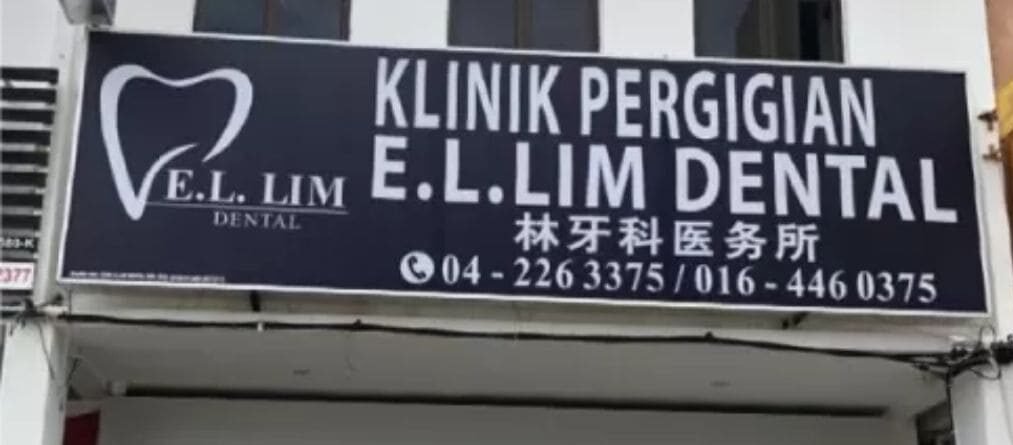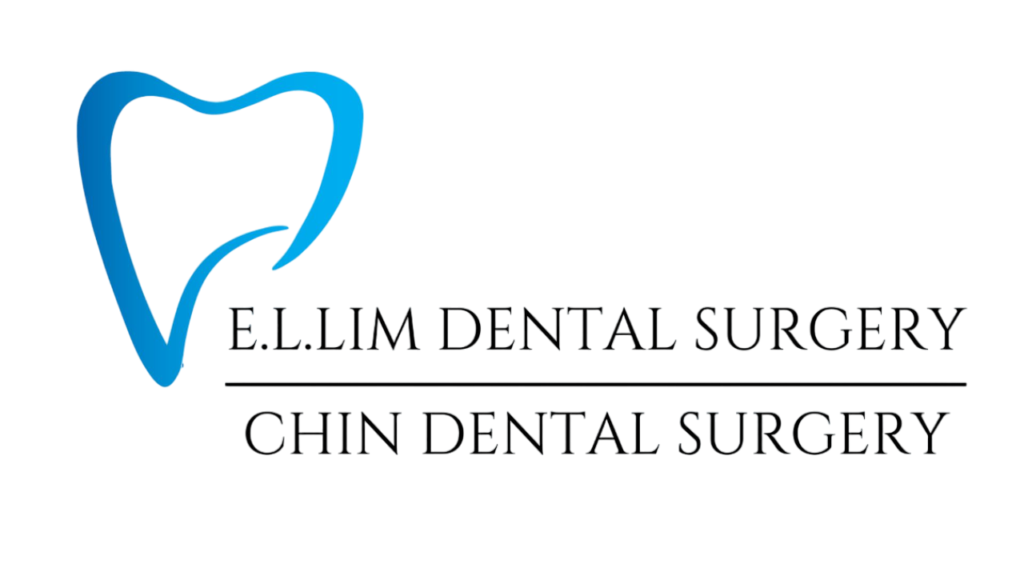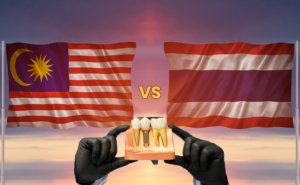So, you just got your braces on – or maybe you’re preparing for your first tightening appointment – and now your mouth feels like it’s gone 12 rounds with a heavyweight boxer.
You’re not alone.
Braces pain is something every patient experiences to some degree, but how long it lasts (and how bad it gets) depends on several factors, including your pain tolerance, the type of braces you have, and how your body adjusts to pressure on your teeth.
At Chin Lim Dental Surgery, we see patients in Bayan Lepas asking the same thing every week:
“Doc, how long will this pain last… and is there any way to make it go away faster?”
Whether you’re considering orthodontic treatment or already have your brackets in place, knowing what to expect helps you stay ahead of the discomfort. If you’re still exploring your options, you can read more about our full range of braces treatment in Penang here.
In this guide, we’re going to break down exactly when the pain peaks, what to expect in the first week, and most importantly, how to soothe braces pain without losing your mind.
Why Do Braces Hurt in the First Place?
To put it simply, braces work by applying consistent pressure to shift your teeth into better alignment. That pressure, though, is exactly what causes discomfort.
When braces are first applied or adjusted, your teeth, gums, and even jawbone respond to the force. This triggers a natural inflammatory response, which can lead to tenderness, soreness, or dull aches. It’s completely normal – your body is just reacting to the changes.
And the type of braces you choose plays a role, too:
- Traditional metal braces use brackets and wires to pull your teeth into place gradually.
- Ceramic braces do the same thing but are less noticeable, though they can sometimes cause similar discomfort.
- Clear aligners like Invisalign apply pressure through tight-fitting trays. They’re removable, but the tightness can still cause soreness when switching to a new set.
The pain isn’t a sign that something’s wrong – it’s a sign that your teeth are moving. That said, knowing what’s happening underneath the surface can help you manage it better.
The Typical Braces Pain Timeline
 Braces pain isn’t the same for everyone, but it does follow a general pattern. Most patients experience discomfort in three key phases: right after getting them on, during adjustment appointments, and occasionally in the long term.
Braces pain isn’t the same for everyone, but it does follow a general pattern. Most patients experience discomfort in three key phases: right after getting them on, during adjustment appointments, and occasionally in the long term.
Understanding what to expect each day can make a big difference, especially if it’s your first time going through it.
Day 1 – The Moment They’re Put On
The moment your braces are installed, you might not feel pain right away. But give it a few hours, and you’ll start noticing a strange, tight pressure across your teeth.
That’s the metal brackets and wires starting to work. It might feel like someone’s gently tugging on your teeth – not sharp pain, but uncomfortable.
Some patients in our dental clinic in Bayan Lepas describe it as a dull ache that builds throughout the day. You might also feel irritation inside your cheeks or lips where the brackets rub against the soft tissue.
Days 2 – 3: The Peak of Soreness
By the second or third day, the soreness often peaks. Biting into anything firmer than a banana might feel like chewing glass (don’t worry – it’s temporary). Even speaking and brushing your teeth can be sensitive during this time.
This is the period where many ask, “how do I remove braces pain?” – and we’ll get to those tips shortly.
First Week – Getting Used to It
During the first week, your teeth and mouth start to adjust. The pain slowly fades, but mild tenderness can linger. Most patients say that by day five or six, the discomfort becomes more manageable.
Here’s where diet plays a big role. Switching to soft foods for braces pain, like mashed potatoes, scrambled eggs, smoothies, and yoghurt, can help you get through the week without putting unnecessary pressure on your teeth.
Monthly Tightening Appointments
Every few weeks, your dentist will adjust your braces to continue the movement. These visits usually cause a similar, though shorter, pain cycle. The tightness returns for a day or two, then fades again.
Some people call it “mini pain resets,” but don’t worry – the intensity tends to decrease as your teeth settle into their new positions.
Can Braces Cause Headaches?

Yes – they absolutely can.
While not everyone experiences it, some patients report headaches shortly after getting braces or following an adjustment. The cause? It’s usually a mix of tension and pressure.
When your teeth are being slowly moved, that pressure doesn’t just affect the teeth – it travels through the jaw and facial muscles too. This strain can trigger a tension headache, especially in the first few days after your braces are tightened.
Other factors that can contribute include:
- Jaw clenching (often unconscious, especially during sleep)
- Inflammation in the gums or surrounding tissue
- Stress or anxiety, especially for first-time wearers
If you’re prone to headaches already, braces may intensify them slightly, at least initially. At Chin Lim Dental Surgery, we often advise patients in this situation to keep hydrated, use a cold compress, and take an over-the-counter pain reliever (if appropriate) during the adjustment period.
The good news? These headaches are usually short-lived, and once your teeth start to settle, they tend to go away.
How to Soothe Braces Pain Quickly
Braces pain doesn’t have to ruin your day – or your appetite. If you’re in that “why did I do this to myself?” phase, here are tried-and-tested ways to take the edge off.
Some bring immediate relief, others help you cope over the long term. You don’t need to do them all at once, but combining a few can make a big difference.
Salt Water Rinses
One of the simplest home remedies is right in your kitchen.
Mix a teaspoon of salt in warm water and gently swish it around your mouth for 30 seconds. This helps reduce inflammation and soothes sore gums, especially where brackets or wires are irritating the inside of your lips or cheeks.
Do it a couple of times a day – it’s gentle, affordable, and surprisingly effective.
Oral Pain Relievers
When the ache gets too distracting, a low-dose ibuprofen or paracetamol can work wonders. Just be sure to follow the dosage instructions and only take them when necessary – don’t rely on them long-term.
At Chin Lim Dental Surgery, we often recommend taking one about an hour before your tightening appointment to get ahead of the pain.
Cold Compresses
Applying a cold pack or even a bag of frozen peas wrapped in a towel to the outside of your jaw can help numb the pain and reduce swelling.
Use it for 10-15 minutes at a time. Great for when the inside of your mouth feels tender, especially after adjustments.
Cold Water or Ice Chips
If you’re out and about and don’t have painkillers or compresses handy, sipping on cold water or sucking on small ice chips can offer quick relief. The cold helps reduce inflammation and dull the discomfort.
It’s like a reset button for your mouth – just don’t chew the ice.
Soft Foods That Help
This is your green light to avoid anything crunchy, chewy, or sticky for the next few days. Stick to soft foods like:
- Mashed potatoes
- Yogurt
- Smoothies
- Scrambled eggs
- Porridge
These don’t just reduce pain – they also prevent further irritation while your teeth are most sensitive. If you’re not sure what to eat, check with your orthodontist (or browse our braces treatment guide for more suggestions).
Gum Massage
Yes – this is a thing.
Gently massaging your gums with a clean finger or soft toothbrush can stimulate blood flow and ease the soreness. Just don’t press too hard. It might sound odd, but some of our patients swear by this trick.
Is It Painful to Have Braces Put On or Removed?
 Let’s clear this up: getting braces put on is not painful. There’s no drilling, no needles, and no numbing involved. It’s more of a “weird” sensation than a painful one.
Let’s clear this up: getting braces put on is not painful. There’s no drilling, no needles, and no numbing involved. It’s more of a “weird” sensation than a painful one.
What causes discomfort is what happens after they’re on, when the braces begin applying pressure to your teeth. That’s when you may feel the soreness or tightness we’ve already talked about.
Putting Braces On
When you sit in the chair, your dentist will clean your teeth, apply a bonding agent, and attach the brackets with special adhesive. Then they’ll connect the brackets with an archwire. It’s more time-consuming than painful.
Removing Braces
Good news: taking braces off is even easier. Most patients say it’s a quick, pressure-filled moment, followed by immediate relief. Your dentist uses a special tool to pop off the brackets, and then polishes away the leftover adhesive.
There might be some sensitivity afterwards, especially if you’re moving straight into wearing retainers, but you shouldn’t feel any sharp pain.
Still worried? Don’t be. At Chin Lim Dental Surgery, we guide our patients through every step so they know exactly what to expect, with zero surprises.
When Should You Contact a Dentist?
Mild discomfort is expected during braces treatment, but if the pain goes beyond what we’ve described, it could be a sign that something’s not quite right.
Here’s when you should reach out to your dentist:
Prolonged Pain That Doesn’t Improve
If it’s been more than a week since your braces were adjusted (or put on), and the pain still hasn’t eased up, something could be off. It might be an issue with how the brackets are positioned, or it could be unnecessary pressure on a certain tooth.
Sharp or Shooting Pain
Dull aches are normal. But if you feel sudden, sharp pains in a specific tooth or area, don’t ignore it. It could signal an exposed nerve, cracked enamel, or even a poorly positioned bracket.
Bleeding or Swollen Gums
Mild gum sensitivity is expected, especially during the first week. But active bleeding, swelling, or pus could point to gum disease or infection. Braces make oral hygiene trickier, so it’s crucial to keep an eye on inflammation.
Broken Brackets or Poking Wires
If a bracket pops off or a wire starts poking the inside of your cheek – contact your dentist immediately. It’s not just uncomfortable – it can slow down your treatment or lead to injury inside your mouth.
Jaw Pain or Headaches That Persist
Some tightness is fine, but if you’re getting frequent headaches or jaw pain that affects your daily life, your bite may need adjusting. A minor tweak by your orthodontist can make a world of difference.
If you’re experiencing any of the above, don’t wait. You can always reach out to your trusted Dental Clinic in Bayan Lepas, our team at Chin Lim Dental Surgery is here to help you stay comfortable, safe, and on track throughout your braces journey.
Frequently Asked Questions
Pain after a tightening usually lasts 1 to 3 days. Some people feel soreness for up to a week, but it gradually fades. If the pain gets worse after several days instead of improving, it’s a good idea to check in with your dentist.
Yes, they can – especially during the first few days of wearing them or after adjustments. This usually happens because of tension in your jaw or changes in your bite. Hydration, over-the-counter pain relief, and cold compresses can help.
Try using an oral numbing gel or taking a mild painkiller an hour before bed. You can also sleep on your back with a soft pillow to reduce jaw pressure. Some people find cold water before bed helps, too.
You can – but results won’t be even. The parts of your teeth covered by brackets won’t be whitened, so we usually recommend waiting until after your braces come off. Then, you can go for teeth whitening treatments to even everything out.
If you have pain that lasts more than 7 days, notice bleeding gums, get sharp or shooting pains, or find that the discomfort is interfering with your daily routine, it’s best to see your dentist. Something may need adjusting.
Dental Clinic Penang
Need Help with Braces Pain? Chin Lim Dental Surgery Has You Covered

Braces pain might be part of the journey, but it doesn’t mean you have to suffer through it.
At Chin Lim Dental Surgery, we’ve helped countless patients across Bayan Lepas and Penang manage their braces treatment with comfort, clarity, and care. Whether you’re getting your braces on for the first time or adjusting to your latest tightening, our team is here to guide you through every step.
From soft food advice to emergency bracket repairs, we’re just one call away from getting your smile back on track.
Book your visit today at our Dental Clinic in Bayan Lepas or call us directly to schedule your consultation!
Let’s make your journey a little smoother and a lot more comfortable.





